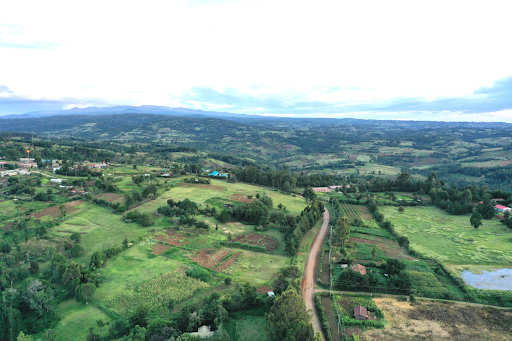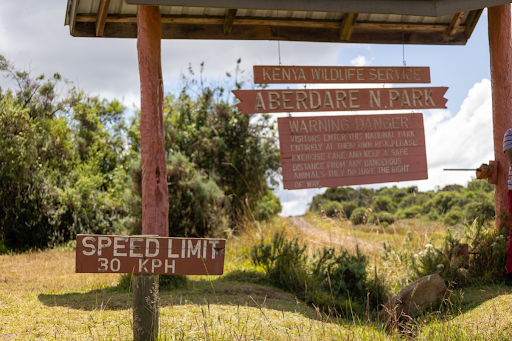By Liz Anyango
Nyeri, Kenya: In a significant development, the Nyeri Environment and Land Court has extended the Conservatory Order on the controversial Ihithe-Ndunyu Njeru section of the Aberdare National Park and Forest Reserve Highway Project. This marks the third extension following the expiry of the previous order on, June 3, 2024.
The case, brought forward by the East African Wildlife Society (EAWL), challenges the proposed section of the Mau-Mau road project by the Kenya National Highways Authority (KeNHA). Environmentalists and a section of community members are raising the alarm over the potential ecological damage posed by the road, which would traverse 49 kilometers of Aberdare National Park, approximately 9.8% of the proposed road length.
The Aberdare National Park is a critical part of Kenya’s natural heritage and is renowned for its rich biodiversity, vital water catchment areas, and wildlife. Opponents of the road who are calling on the government to consider a viable road alternative, argue that constructing a highway through the protected area would have devastating impacts on the environment.

Christian Lambrecht, Executive Director of Rhino Ark, a conservation organization active in the Aberdare region, emphasizes that the proposed route offers minimal economic benefits. “The proposed stretch slicing through Aberdare National Park does not benefit local communities as there are no settlements or businesses within the forest stretch. It is also less cost-effective compared to an alternative route along the park’s boundary,” Lambrecht notes.
Speaking during a community engagement session with the community members Nancy Githaiga- Kenya Country Director at the African Wildlife Foundation added, “We are not saying no to development. We are not saying no to a road and connecting people. But we are saying there are better alternatives to that connection.”
“When you get feedback from community members, especially those who are adjacent, I am not sure that they were given information in terms of the construction of this highway. Without the water towers and the protection of the water towers, we are actually at great risk as Kenyans, and we know that we face significant water shortages throughout the year. We also know that being able to restore and rehabilitate degraded forests also helps to reduce the impacts of climate change.” Nyaguthii Chege – Board Chair, Green Belt Movement added.
The proposal of an alternative route that would avoid the park and forest reserve entirely, offering greater socio-economic benefits with less ecological impact has been mapped. The suggested Ndaragwa-Kariamu Road alternative is 17 kilometers shorter and poses a lower environmental risk. It traverses areas with existing settlements, farms, and businesses, thus promising to better serve the economic needs of the region while protecting the Aberdare ecosystem.
“The current road from Gietereru to Mastore, Shamata, and Kariamu is a real nightmare. Reaching the county headquarters requires a frustrating detour back to Wiyumiririe and then all the way to Nyahururu, which is in Laikipia County. This journey is too long. To solve this problem, I propose tarmacking the road directly connecting Gietereru to Mastore, Shamata, Kariamu, and finally Ol Kalau – the county headquarters. Then there is the road being built through the forest, and it will be closed at night. What happens to those who travel late? Where will they go?” Charles Kimaru from Nyandarua County, posed the question.
Locals from the suggested alternative route emphasize their need for improved road infrastructure, noting that the risk of vehicle-wildlife collisions, disruption of natural habitats, and the potential for increased human-wildlife conflict are significant concerns.
John Kiragu, a businessman from Nyandarua, advocates for rerouting: “We request that the road be rerouted to this side of the Aberdares. If it goes through the forest, it will create conflict between humans and animals. However, if the road passes here, it will aid us in transporting our farm produce, with many residents benefiting from improved accessibility.”

Catherine Wangui, a farmer from Pesi, highlights the impact of poor road conditions on agriculture: “We grow potatoes and carrots. None of our produce gets to the market fresh because of the poor road conditions. If we manage to get to the market, we are forced to sell at a low price due to delays, and often, no vehicle owners are willing to risk getting stuck here. If this road is improved, we will experience progress similar to that in Europe. Currently, our development lags far behind. If you buy a car, it breaks down within a month or two on these terrible roads. If the road is tarmacked, every farmer will buy a car.”
The financial considerations also favor the alternative route. Conservationists argue that the alternative road would be 1.5 billion shillings less expensive than the 4.4 billion shillings estimated for the proposed Mau Mau road. This alternative not only offers economic and environmental benefits but is also more fiscally responsible.
“What impact will it have on communities living beyond the Aberdare? Christine Mwangi, the Regional Coordinator – of Africa Sustainable Investments and Infrastructure Programme at the World Wide Fund for Nature -Kenya, poses the question. “ The destruction of this ecosystem will affect all of us, because what happens in the Aberdares does not stay in the Aberdares, making the preservation of this critical ecosystem, my business, your business, and our business”
Despite environmental concerns, some community members, like Michael Wachira of Nyeri County, express optimism about the project’s potential to boost local economies, calling on the Government to prioritize the preservation of the ecosystem while enhancing connectivity. Wachira believes that the road will enhance business activities in the Mt. Kenya region by improving the transport of food from Nyandarua to Nyeri, which has faced accessibility challenges.
“We trust that the government will prioritize environmental protection in Aberdare. However, we are optimistic that the road will stimulate business activities in the Mt. Kenya region,” says Wachira.
The ongoing legal battle reflects the tension between development and environmental conservation. The court’s decision to extend the Conservatory Order and refer the matter to the Chief Justice for the formation of an uneven bench highlights the complexity and significance of the case.













